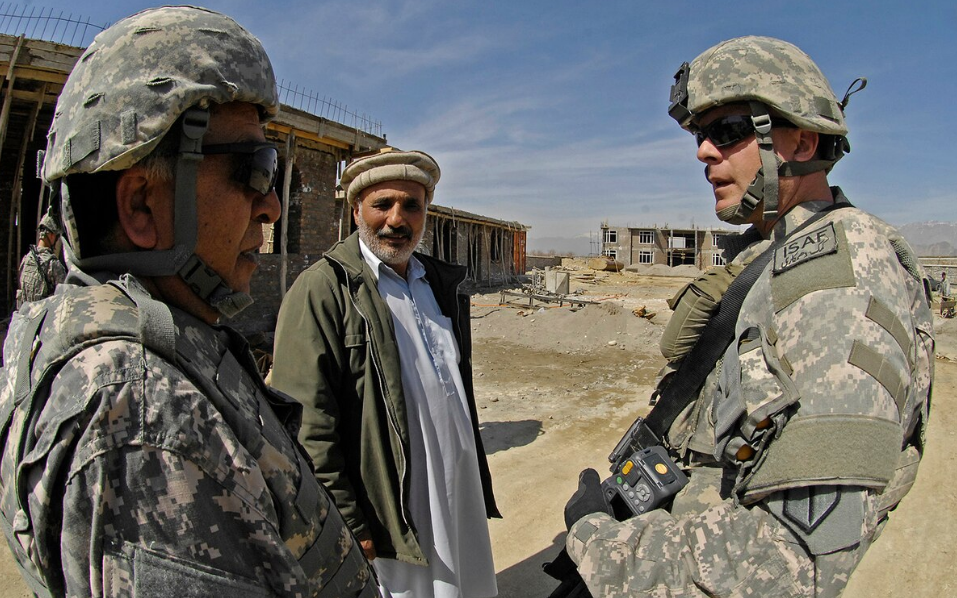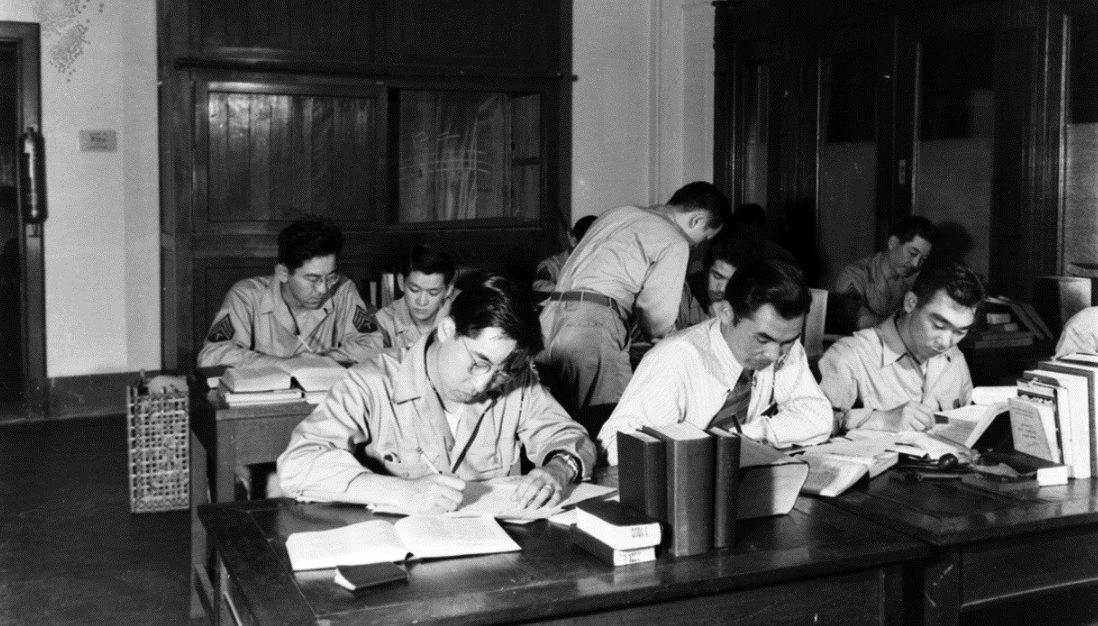By Pantelis Simotas,
War is often depicted as a chaotic struggle of soldiers, tanks and weaponry. However, behind the scenes, another group of individuals plays a crucial, albeit less recognized, role in the theater of conflict: translators. These linguistic intermediaries are vital in bridging communication gaps between conflicting parties, aiding intelligence operations, facilitating humanitarian efforts, and ensuring accurate reporting by journalists. Their contributions, often made under perilous conditions, are indispensable to both military and civilian operations in war zones.
In war, effective communication can mean the difference between life and death. Translators facilitate dialogue between military personnel and local populations, which is crucial for operations ranging from simple checkpoints to complex peace negotiations. In multilingual conflict zones, the ability to convey messages accurately ensures that orders are followed correctly, misunderstandings are minimized, and the local population is more likely to cooperate. For example, during the Iraq and Afghanistan wars, translators, often referred to as “terps” by U.S. forces, provided critical support in interactions with local communities. They helped soldiers navigate cultural nuances and communicate effectively with local leaders and civilians, which was essential for gaining trust and gathering intelligence.
Translators are pivotal in intelligence gathering and analysis. They intercept, translate, and interpret communications from the opposing side, providing insights that can shape military strategies. This role requires not only language skills but also a deep understanding of cultural context to accurately interpret the subtleties of conversations, written communications, and propaganda.
Moreover, translators assist in debriefing prisoners of war and defectors, extracting valuable information that can influence tactical decisions. Their ability to translate documents, analyze intercepted communications, and understand slang and idioms used by adversaries can significantly impact the effectiveness of military intelligence.

War zones are often characterized by humanitarian crises, with civilians bearing the brunt of the conflict. Translators play a vital role in humanitarian missions by aiding organizations like the Red Cross, Doctors Without Borders, and the United Nations. They help these organizations communicate with affected populations, ensuring that aid is delivered efficiently and that the needs of the most vulnerable are met. For instance, during the Syrian civil war, translators were essential in refugee camps, hospitals, and distribution centers. They facilitated communication between aid workers and refugees, enabling the provision of medical care, food and shelter. Their presence ensures that humanitarian efforts are not hindered by language barriers, thus saving lives and alleviating suffering.
War correspondents rely heavily on translators to report accurately from the front lines. Translators help journalists understand the local context, conduct interviews, and verify facts. This collaboration is crucial for delivering reliable news to the global audience, shedding light on the realities of war and providing a voice to those affected by the conflict. During the Bosnian War, for example, translators assisted journalists in navigating the complex ethnic and political landscape. They provided insights into local sentiments and helped translate interviews with key figures, which were crucial for accurate reporting. Without translators, the world would have a much narrower, less nuanced understanding of war-torn regions.

Despite their crucial role, translators in war zones often face significant risks. They are prime targets for enemy forces due to their association with foreign military units or humanitarian organizations. In Iraq and Afghanistan, many translators were threatened, kidnapped, or killed for their work with coalition forces. Moreover, translators face ethical dilemmas. They must balance loyalty to their employers with their duty to their own communities. Translating sensitive information can put them in precarious positions, where their actions can have far-reaching consequences for both themselves and others.
Translators in war conflicts are indispensable, yet often overlooked, heroes. Their ability to navigate language and cultural barriers enables effective communication, critical intelligence operations, humanitarian assistance and accurate journalism. Recognizing their contributions and ensuring their protection is essential for the success of both military and civilian efforts in conflict zones. As we reflect on the complexities of modern warfare, the invaluable role of translators should not be forgotten; their work not only facilitates operational success but also upholds the principles of humanity amidst the chaos of war.
References
- The Key Role of Translators in times of War. Idea translations. Available here
- Interpreters in the Great War. One Global. Available here
- War translators and their importance. Localization News. Available here




